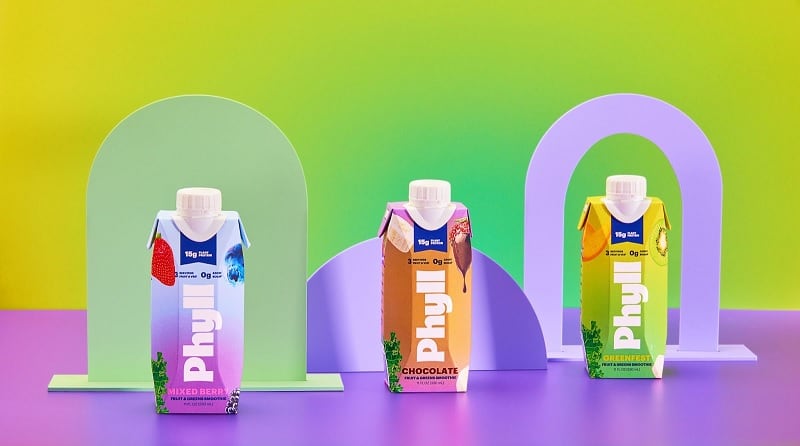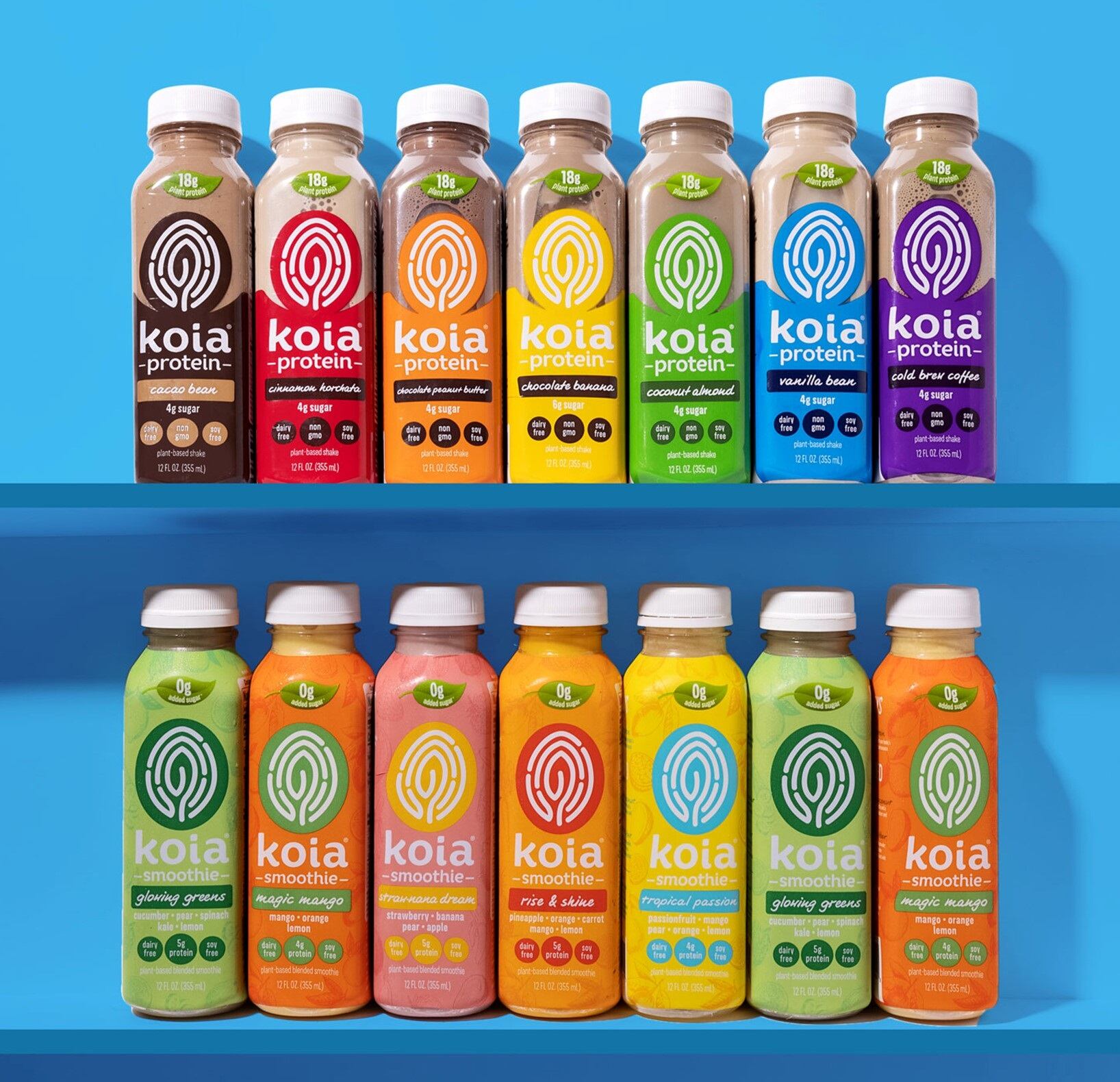Launching this week with the promise of one serving of vegetables, two servings of fruit, and 15 grams of plant-based protein per 11-ounce carton with no added sugars or sweeteners, Phyll’s shelf-stable, ready-to-drink fruit and green smoothies offer an “easy and convenient” way to consume produce, co-founders Jeff Goodman and Sam Dickstein told FoodNavigator-USA.
“While there are several options on the market for fruit-based drinks and protein shakes, we strived to create a product that combined the best aspects of the existing products on the market while resembling the experience of a freshly made smoothie,” Goodman and Dickstein said in an email.
They explained that this is possible thanks to their trademarked “Clean-Pressed” processing technique that they described as a “novel application of existing technologies used across other shelf-stable beverages on the market” that is “similar to flash pasteurization” to kill dangerous microorganisms so that “Phyll smoothies … remain fresh even when kept outside of the fridge.”
Even though the products are shelf stable, the duo say they hope they will sell alongside other refrigerated juices and smoothies for an easier grab-and-go solution.
“We believe our smoothies will appeal to a wide range of consumers. This includes anyone who would like an easy and delicious way to get their fruits and veggies, those looking for a healthier option compared to existing protein-based drinks or bars, as well as consumers who wish to upgrade their juices to a more filling and convenient option,” they added.
Can Phyll escape sugar’s long shadow?
While each paper-based carton calls out the smoothie as having zero added sugars, this doesn’t mean Phyll is sugar-free. On the contrary, each 11-ounce serving has 25 grams of sugar – an amount the company says is equal to that in an apple (although other sources, including Harvard T.H. Chan School of Public Health, peg a medium apple as having about 19 or 20 grams of sugar). And while this is less than the 39 grams of sugar found in a slightly larger 12 ounce can of regular Coke, it is still enough to make some consumers who are avoiding sugar also avoid the beverages.
According to Mintle US research on juice published last year, about half of consumers who reported drinking less juice said they did so to reduce their sugar intake – prompting an “identity crisis of sorts” for juice, juice drinks and smoothies “as factors like sugar and artificial content came to overshadow the nutritional value of these products,” the author noted.
As consumer concern about overall sugar increased between 2015 and 2019, the total US juice market declined 3.6%, and the ready-to-drink smoothie market saw year-over-year losses amounting to a $1b drop in sales since 2016, according to the report.
These declines served as a backdrop for PepsiCo’s decision to sell Tropicana orange juice brands, Naked and other juice brands in North America last Summer for $3.3bn, and The Coca-Cola Co.’s decision one year earlier to discontinue its Odwalla juice business and refrigerated trucking network that delivered fresh drinks to stores.
At the time of Odwalla’s demise, the company’s original co-founder attributed a slow decline in the brand that began around 2010 to emerging consumer concerns about sugar.
Despite these high profile moves and a slowdown in sales pre-pandemic, the US smoothie market started to regain some steam with the outbreak of COVID-19 as consumers looked for better-for-you, nutrient dense options to help bolster their immunity, according to Grand View Research.
While the fervor with which consumers flocked to juices and smoothies during the early days of the pandemic will likely relax slightly, Grand View Research predicts consumer interest will continue to fuel global sales – estimated at $6.68b in 2021 – at a 9.3% compound annual growth rate through 2028.
How will smoothies weather economic uncertainty?
Another substantial challenge facing the fresh pressed juice and smoothie segment is the rising economic uncertainty that is prompting some consumers to shift their shopping habits to favor higher value products and stretch their grocery budgets.
Under these circumstances, Phyll’s price point of about $5 per serving may give some consumers pause, especially when compared to some competing RTD chilled options, such as Bolthouse Farms that come in closer to $2 or $3 for an 11-ounce bottle.
But Phyll’s founders actually see the price point as an attribute as they say their smoothies are “a closer alternative to a freshly made smoothie than current RTDs on the market from a quality and ingredient standpoint,” and therefore, “while you may be able to find cheaper options on the shelf, none of them deliver the same value as our product as far as servings of both fruits and veggies plus protein.”
In addition, because Phyll “can be used as a healthy meal replacement option,” the founders told FoodNavigator-USA that the brand’s “sub-$5 price point provides a strong value proposition when inflation is top of mind for many.”
Looking forward, Goodman and Dickstein hope to further Phyll’s mission to make healthy eating more accessible and convenient by expanding the distribution of their smoothies nationwide while also exploring a launch into other product categories and formats.


